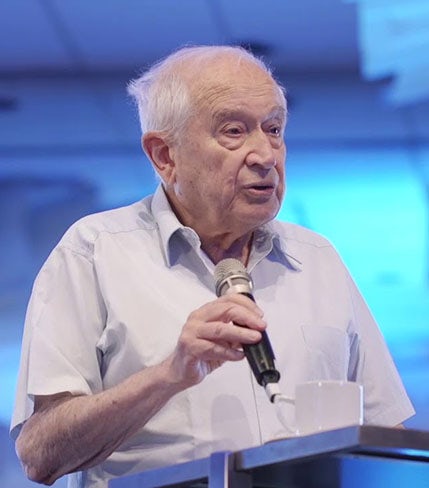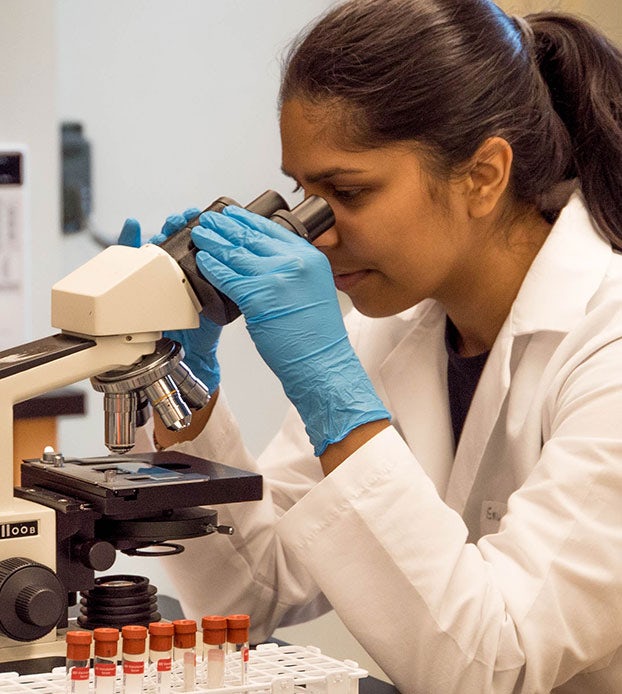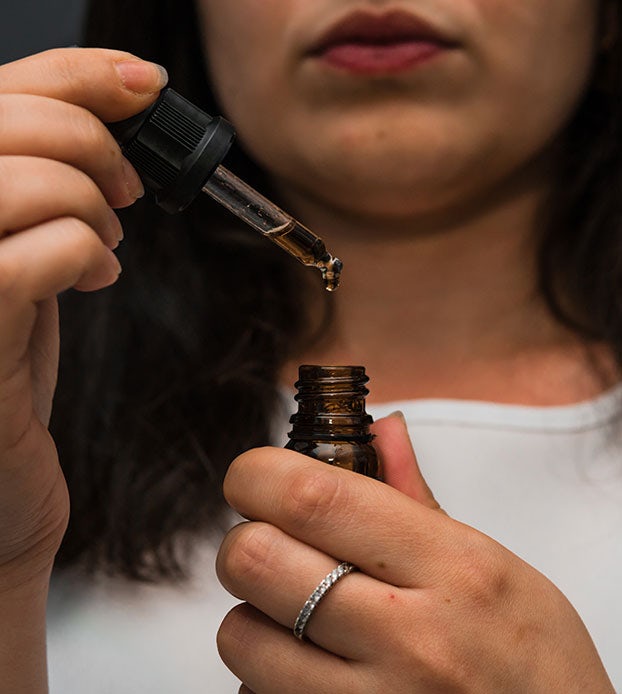Barely a quarter of cannabis users trust their doctor to provide them with reliable information about medical cannabis and how to use it to treat their medical or health conditions, according to a recent survey.
Carried out in May and April, the survey polled 167 cannabis users – half male and half female – to gauge their thoughts and behaviors regarding medical and recreational cannabis. The survey found that only 26% of the respondents would trust their doctor to provide information on using cannabis for medical reasons, while 36% say they would trust dispensary staff, and 30% said they would trust their friends.
At the same time, 80% of those surveyed said that they would be willing to use medical cannabis to treat a medical condition if it was recommended by their physician.
The respondents ranged in age from 19 to 81, and 50% identified as White, 20% as Latino, 12% as Asian, and 10% as Black.
The poll was carried out by People Science, a tech-enabled science company that describes its mission as bringing together “health minded people, research scientists, and healthcare providers in an effort to unlock the potential of alternative medicines.”
People Science co-founder and co-CEO Dr. Belinda Tan told The Cannigma that she found it an intriguing contrast that most respondents said they could not depend on their doctor to provide them with information about cannabis, but most still would trust their doctor enough to follow a recommendation they made about medical cannabis.
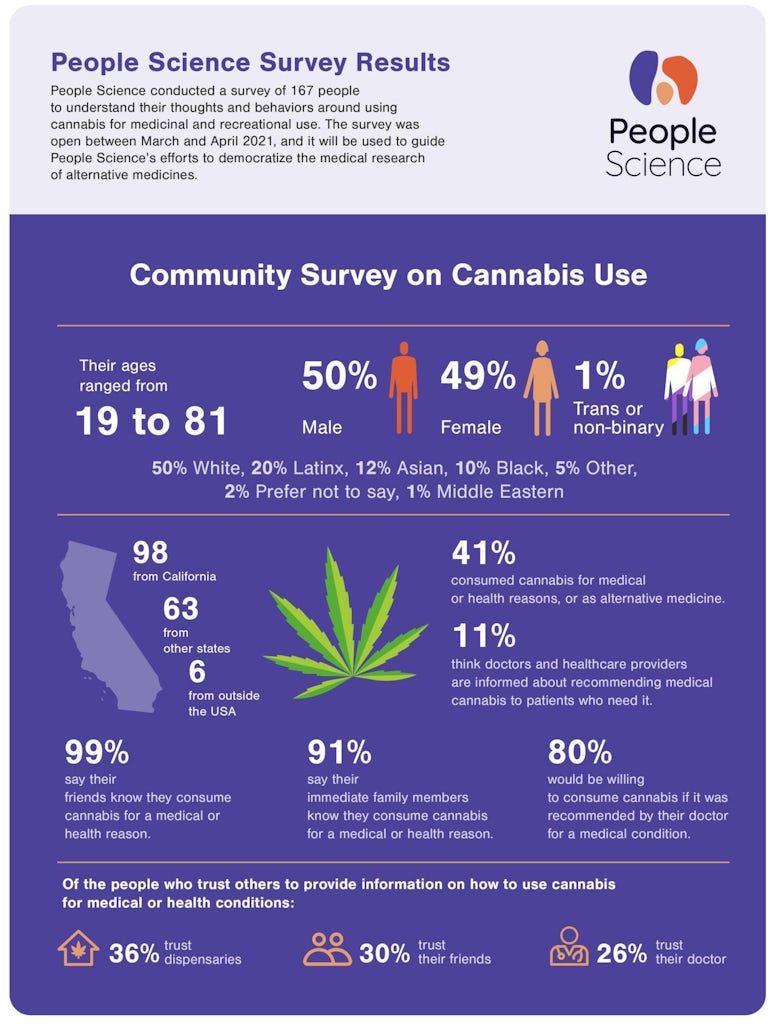
“People want to trust their doctors, but doctors need knowledge. Medical societies are slowly providing more CME (continuing medical education) to doctors on cannabis, however, that educational content tends to be slanted toward risk mitigation. Fortunately, there is a slowly growing community of cannabis physicians who are learning through trial and error and from one another. We have a ways to go,” Tan said.
‘Doctors aren’t receiving the education they need about cannabis’
The hesitance depicted in the People Science study is consistent with previous research on the matter of health professionals and medical cannabis aptitude.
A 2018 research paper in the International Journal of Drug Policy analyzed in-depth interviews carried out with 24 Israeli physicians working in pain medicine, oncology, and family medicine, and found that “physicians discussed contrasting narratives of cananbi, presenting it as both a medicine and non-medicine.”1
The researchers found that the physicians were often influenced by prohibition in their narrative on cannabis, and that “physicians did not have a consolidated perspective as to whether cannabis is a medicine or not, but rather struggled with this question. The dualistic narratives of cannabis reflect the lack of a dominant narrative environment that supports the integration of cannabis into medical practice.”
The paper concluded that the “lack of a dominant narrative environment” on the efficacy of medical marijuana can represent a barrier to the implementation of medical cannabis policies.
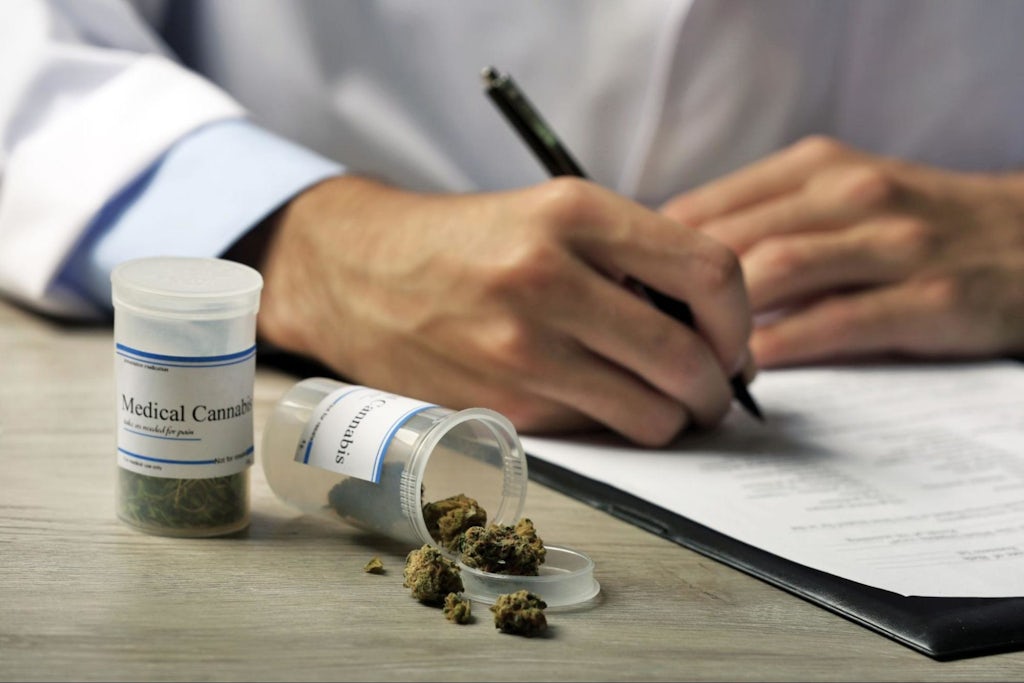
A 2019 report analyzed an electronic survey carried out on primary care providers in a Minnesota-based healthcare system in early 2018, and found that of the 62 respondents, the majority strongly or somewhat agreed that medical cannabis is a legitimate medical therapy, but the majority did not know if it is effective for managing almost half of the qualifying health conditions for medical marijuana in Minnesota.
The researchers stated that these knowledge gaps must be addressed and that “clinical trial data about how medical cannabis improves patient quality of life domains is desperately needed as this information can impact clinical decision-making.”
One of the more extensive reports of this nature was published in the Journal of Cannabis Research in 2018. The study found that out of 344 licensed physicians in Ohio, only 42 were certified or had plans to become certified to recommend marijuana , and that 62% of all respondents were unlikely to recommend marijuana to the patients. The researchers did note however that only 2.9% of the physicians contacted decided to take part in the survey, possibly indicating that the results are biased towards physicians who have strong opinions about medical cannabis.2
“Physicians will likely be caring for patients who are using cannabis regardless of their own beliefs about it. The lack of training regarding cannabis in healthcare, along with requiring “certified recommenders” to have training could result in a fractured healthcare system,” the researchers stated.
Lack of research perpetuating stigma
The knowledge and perceptions healthcare professionals have regarding cannabis can have a big impact on patients, who also may be intimidated by the stigma that remains surrounding cannabis use. This can potentially lead patients who use cannabis recreationally to hide it from their doctors, and can deter them from asking their physicians about medical marijuana.
Part of the problem may lie with the medical establishment, and the lack or scarcity of cannabis studies in medical school curriculum.
The official policy of the American Medical Association states that cannabis “is a dangerous drug and as such is a serious public health concern” and should not be legalized for adult recreational use.
The AMA policy also calls for “research on the impact of legalization and decriminalization of cannabis in an effort to promote public health and public safety,” and “stronger public health messaging on the health effects of cannabis.”
A nationwide survey carried out in 2017 found that only 9% of medical schools have medical marijuana documented in their curriculum, and that 66.7% of medical school deans “reported that their graduates were not at all prepared to prescribe medical marijuana.” A quarter reported that their graduates “were not at all prepared” to answer questions about medical marijuana.3
The survey also found that 89.5% of residents and fellows “felt not at all prepared to prescribe medical marijuana,” and 84.9% reported receiving no education about medical marijuana in medical school or residency.
“Our study highlights a fundamental mismatch between the state-level legalization of medical marijuana and the lack of preparation of physicians-in-training to prescribe it. With even more states on the cusp of legalizing medical marijuana, physician training should adapt to encompass this new reality of medical practice,” the researchers who compiled the survey concluded.
Sources
- Zolotov, Yuval and Vulfons, Simon and Zahrin, Dana and Sznitma, Sharon “Medical cannabis: An oxymoron? Physicians’ perceptions of medical cannabis” The International Journal on Drug Policy, 57:4-10 April 2018
- Lombardi, Emilia, et al. “Ohio Physician Attitudes toward Medical Cannabis and Ohio’s Medical Marijuana Program.” Journal of Cannabis Research, vol. 2, no. 1, Apr. 2020, p. 16. BioMed Central, https://doi.org/10.1186/s42238-020-00025-1.
- “Physicians-in-Training Are Not Prepared to Prescribe Medical Marijuana.” Drug and Alcohol Dependence, vol. 180, Nov. 2017, pp. 151–55. www.sciencedirect.com, https://doi.org/10.1016/j.drugalcdep.2017.08.010.
Sign up for bi-weekly updates, packed full of cannabis education, recipes, and tips. Your inbox will love it.

 Shop
Shop Support
Support
